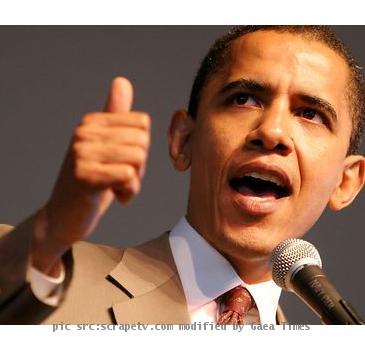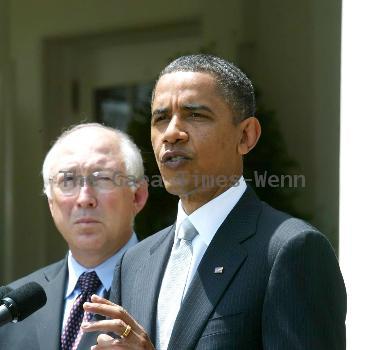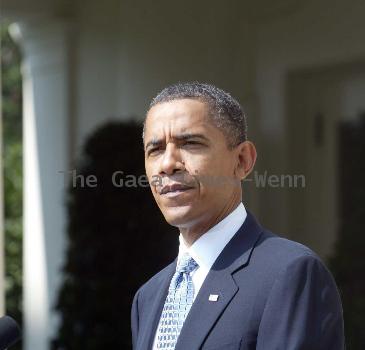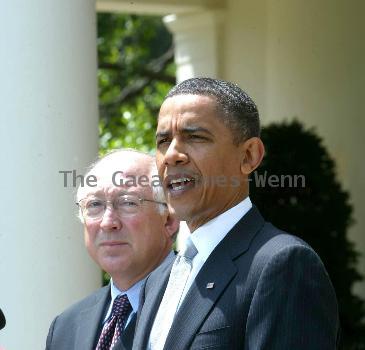Newspaper says doctored photo of Egyptian president leading Mideast talks was an illustration
By Sarah El Deeb, APFriday, September 17, 2010
Egyptian newspaper defends doctored photo
CAIRO — A state-run newspaper on Friday defended a decision to publish a doctored photograph putting Egypt’s president front and center at Mideast peace talks in Washington, saying it was meant to illustrate Hosni Mubarak’s key role.
The original photo shows President Barack Obama in the lead, flanked by the Israeli and Palestinian leaders, Mubarak and Jordan’s King Abdullah II on the red carpet as the talks got under way Sept. 1 in Washington.
Al-Ahram, Egypt’s oldest newspaper, altered that image in its Tuesday edition to show Mubarak in the lead, with Obama slightly behind him to his right, plastered over a broadsheet article titled “the Road to Sharm El Sheikh.” That was referring to the Egyptian Red Sea resort that hosted the second round of negotiations, which wrapped up in Jerusalem on Wednesday.
Egyptian bloggers and activists said the photo was unprofessional and called it an example of the regime’s deception of its own people. Critics also said the photo was an attempt to distract attention from the fact that Egypt’s role in the Mideast peace process has waned.
The newspaper’s editor-in chief, Osama Saraya, lashed out at critics in an editorial Friday, pointing out the original photo was published the day the talks began and the doctored version was only meant to illustrate Egypt’s leading role in the Mideast peace process, not to change the story.
“The expressionist photo is … a brief, live and true expression of the prominent stance of President Mubarak in the Palestinian issue, his unique role in leading it before Washington or any other,” Saraya wrote. The photo is still posted on the newspaper’s website.
Egyptian officials have said they were providing a location for the talks and were not involved in the mediation, although Mubarak suggested a compromise over Israel’s plan to lift its partial ban on construction on the West Bank later this month.
Opponents of Mubarak’s nearly three-decade rule seized on the controversy to criticize the government, which is accused of widespread abuses aimed at suppressing dissent.
Egyptian blogger Wael Khalil, who first called attention to the altered photo, said the photo was a “snapshot” of what he called daily deception about a number of issues, including democratic change and social justice.
“They lie to us all the time,” he said. “Instead of addressing the real issues, they just Photoshop it.”
Saraya accused critics of launching a smear campaign against Al-Ahram, which was first published in 1876. The newspaper has enjoyed the widest circulation in Egypt but has faced a growing challenge in recent years by a new breed of private publications and the Internet.
It is not unusual for Egyptian newspapers to retouch pictures of senior officials to improve their appearance or light.
Hisham Kassem, a publisher and human rights activist, said those who posted the image had apparently meant to please the president; a practice he said was reminiscent of old Soviet ways.
“It has done more harm,” Kassem said.
Tags: Africa, Barack Obama, Cairo, Egypt, Middle East, North Africa, Palestinian Territories



